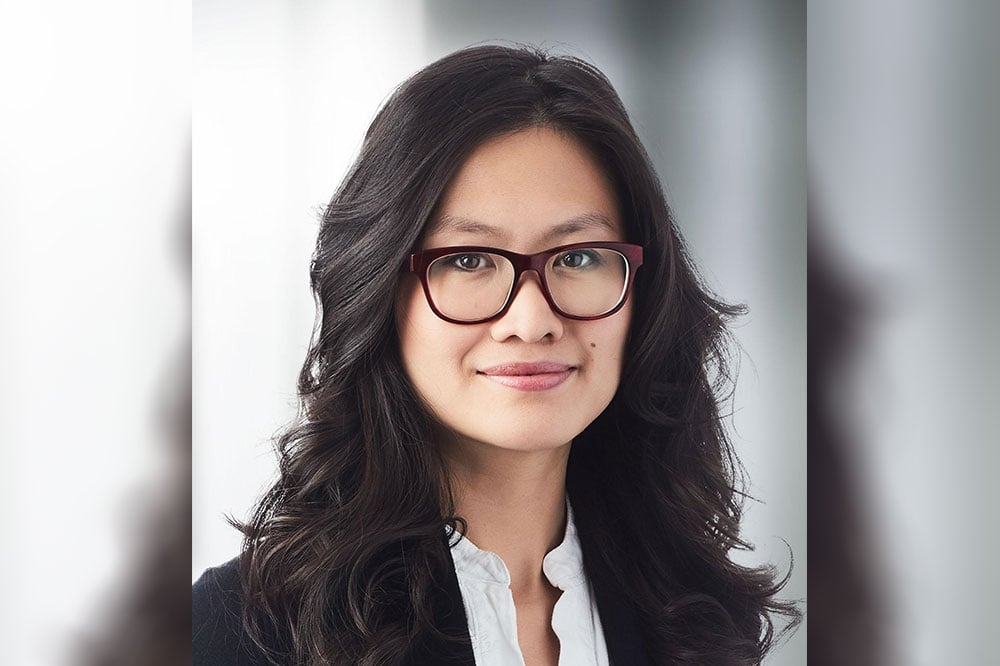By design, law firms require many voices to agree before decisions impacting young lawyers are made

Because law firms make decisions through a consensus of partners, it’s uniquely challenging for young lawyers to take advantage of not just mentorship, but sponsorship, says Kim Le.
“The sponsor for you is going to be the person who's interested in the same kinds of things that you are,” she says. “They can help you fine tune that skill or bring you along to client events or meetings, and introduce you as part of a deal team, potentially, for that client. That helps expand your reach.”
Le, a corporate lawyer, was just named partner at Stikeman Elliott LLP in Toronto. The nature of law firms means that lawyers like Le musts spend years investing in building relationships ahead of becoming partner.
“Partnership is a bit of an unusual organization in the sense that when you become a partner of something, you are one of a whole lot of people,” she says. “So really getting people to believe in you and your potential involves getting quite a number of people on your side. Because partnerships are not made up of one, or two, or three people — they're made up of, dozens. And that's where sponsorship can help.”
It took Le a while, she says, to learn the power of asking for what she wants when it comes to sponsors.
“I think this may be something that is probably common amongst younger, inexperienced people — particularly I think women are shy or about vocalizing exactly what they want,” she says.
“That's something that I would have counseled myself when I was younger, to really be more vocal about what I wanted,” she said, adding: “I think people naturally are afraid to ask for things because it makes them look too demanding or inappropriate or just overstepping their bounds. And I think mentorship is a really important way of helping people find their own voice.”
Le, is speaking at Canadian Lawyer’s Women in Law Summit on Feb. 12 in Toronto, where her panel will focus on “utilizing mentorship opportunities to grow your career.”
“Being really clear about what your goals are is really important,” she says. “Everyone assumes that you want to make partner at some point — but some people don't want to be, and some people do. I think if you vocalize it and you're very clear — ‘my eventual goal is to be partner’ — you quickly attract the people who are interested in helping you get there and who want to support you in that in that goal.”
While most of her mentors through the years have been men, she has served as both a formal and informal mentor to young lawyers.
“I'm such a big supporter of mentorship because I've experienced firsthand how powerful it is,” she says. “As a young lawyer going through a firm, you develop these relationships pretty naturally with the people that you interact with, and it can be such an extremely strong source of support and guidance …. throughout my more senior years, I really started to develop some impassioned sponsors, who really cared and really believed in me.”
A believer in positive thinking, Le suggests to her mentors that they use infectious enthusiasm to generate excitement about their role in the firm. Other promising signs in young lawyers are interest, curiosity, eagerness for the job, she says.
“The path to partnership is really the product of so many efforts: you've got to be a good lawyer, you've got to know the law, you've got to be able to be a great service provider to clients. And you've got to be really diligent and attentive with your work. But I think really getting to the next level, you can't achieve that alone. You've really got to get some people in your corner to advocate for you,” she says.
When she went to law school, she was younger than some of her classmates, and was impressed by their different worldviews, she says.
“My dad had gone to law school in Vietnam but then the war happened. And he was pulled into military service, so he wasn't able to finish,” she says. “[My parents] basically kind of started from scratch — they ran a restaurant for a while, and all these sort of food businesses. I wasn't really exposed to people who were lawyers and had law degrees, but they were super entrepreneurial . . . . Now I do a ton of work with U.S. private equity funds, who invest into Canada. And the businesses that they buy are family-owned, often run by entrepreneurial people. So, meeting these people is always such an interesting experience for me because they remind me so much of my own parents and how industrious they were.”
Le, who has now lived in Montreal, Toronto and New York, says that from an early age, she sought diverse perspectives, which has coloured her work. She says she’s always wanted to be the kind of person who opens doors for others.
“I grew up without having a person who was Asian in the partnership. It was something that I'd never known I was missing until somebody pointed it out. I think part of the power of having more diverse leadership is really being able to represent better the people who are working with you and learning from you,” she says. “Our clients are very diverse as well.”
To hear more from Kim and other leading women in law, book your ticket to the Canadian Lawyer Women in Law Summit here.










